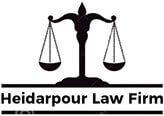7 Steps for Managing Debt Collection Calls

Unexpected events happen to everyone, and sometimes those events can cause financial strain. Debt can cause uncertainty and fear when it becomes unmanageable. The situation only becomes worse when aggressive debt collectors get involved. The law protects consumers against some collection tactics. Understanding your rights is vital.
Step One: Demand Detailed Information
Always get the name of the collection agency, their contact information, and the details of the debt they want to collect. Debt collectors do not always have accurate information and can sometimes contact the wrong person with the same name as the debtor. Some collection calls are also fraudulent, so ensure the debt is legitimate.
Step Two: Research the Agency
Do not promise the debt collector anything during an initial conversation. Begin by researching the agency first to learn more about them. The Federal Trade Commission (FTC) provides consumers with a searchable online list of banned debt collectors. The agencies and individuals listed by the FTC have been found guilty of breaking debt collection laws and cannot participate in the business of collections.
Step Three: Protect Your Privacy
Debt collectors cannot discuss your debt with any third party without your permission. Collectors cannot contact employers, mail postcards with visible information about the debt, or mark the exterior of collection letters with information related to the money owed. Refuse to work with any collector that performs these tactics and immediately seek legal advice.
Step Four: Keep a Record
Consumers are protected against harassment from debt collectors through the Fair Debt Collection Practices Act. The debtor may need to file a lawsuit or a complaint about a collector that uses illegal methods to collect debts. Keep records of their behavior for this purpose.
Note the date and time of every phone call you receive from them, even if you do not answer the call. Save any correspondence from the collection agency, including texts, emails, and letters. List the names of anyone the agency contacts without your permission.
Step Five: Have Written Agreements
Only agree to payments if the debt is legitimate, and you can follow the agreement established. Do not make any payments until you receive a written agreement. The collection agency does not have the legal right to charge debtors fees for their services. The only exception is if the charges were part of the original contract between the debtor and the creditor.
Step Six: Screen Your Calls
Stop communicating with any debt collector that will not follow basic collection laws. Allow your voicemail to answer any anonymous or unknown numbers or block the debt collector’s number entirely. Some basic guidelines of what you may consider unreasonable behavior from debt collection agencies include:
- Failing to give their contact information
- Using fake numbers or names on caller ID
- Refusing to identify the company when talking with the debtor
- Not providing written information about the debt when asked
- Placing collection calls early in the morning or late at night
- Calling multiple times per day
Step Seven: Get a Lawyer
A 2017 survey by the Consumer Financial Protection Bureau (CFPB) showed that 25 percent of consumers contacted by debt collectors felt threatened by the collectors. Negotiations are impossible if the agency will not accept that the debt is not yours, the collector does not follow the law, or you feel threatened. Contacting a lawyer is the only solution.
Unfair collection practices happen too often. At Heidarpour Law Firm, PLLC, we represent people who have experienced harassment and other illegal tactics by debt collection agencies. Our team can help you stop the phone calls and texts. Contact us to discuss the details of your case to see if we can help you.
